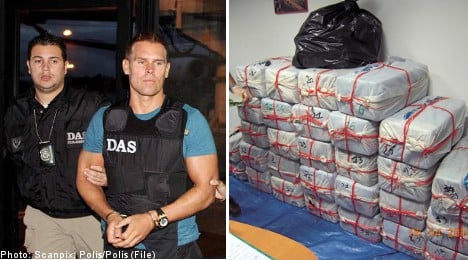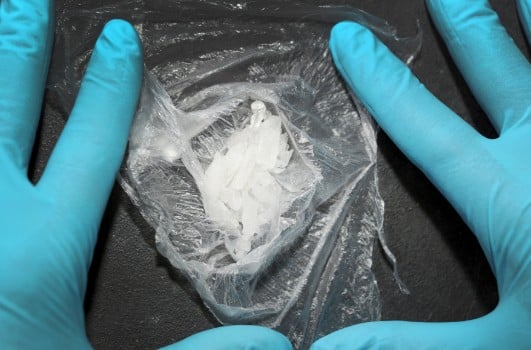The cocaine, which had a street value of 4.5 billion kronor ($665 million), had been imported from Colombia.
The 40-year-old, Jonas Oredsson, is believed to be the mastermind behind the trafficking, but he is known to have had help from several people, including his mother.
The court settled on the lengthy penalty after taking the man’s lengthy criminal record into account.
Another man, 56-year-old Mauritz Andersson, was sentenced to 14 years for his involvement. He confessed to the crime.
“I knew that I was engaged in smuggling, I even knew that it was narcotics,” he said during interrogations, according to the Aftonbladet newspaper.
Andersson intends to appeals the verdict.
The crimes, which took place between 2006 and 2010, were uncovered during a record drug bust in June 2010 on a sailboat off Martinique when the 56-year-old sailor was arrested with a 1.4 tonne cargo of cocaine.
The two men were found guilty of attempted aggravated narcotics crimes. Their accomplices, a 30-year-old and a 33-year-old, were sentenced to prison for eight years.
The investigation has been ongoing for four years, and Swedish police have had help from police in the US, Colombia and France, as well as extensive cooperation with European Union agencies Eurojust and Europol.
Oredsson has a lengthy history of criminal activities, including several counts of bank robbery in eastern Sweden, one of which he took a cashier hostage.
He is also known for his escapes from authorities, once being taken by masked and gun wielding men from a correction centre, and once from a court by a man on a motorcycle after having just been sentenced to 12 years prison.
Oredsson’s mother is charged with having hidden 26 million kronor in a foundation in Switzerland.
The criminal network is known to have spent 115 million kronor between 2007 and 2010, including the purchasing of houses and boats in up to five different countries.
Members of the group are also charged with money laundering in Spain.
TT/AFP/The Local/og



 Please whitelist us to continue reading.
Please whitelist us to continue reading.
Member comments